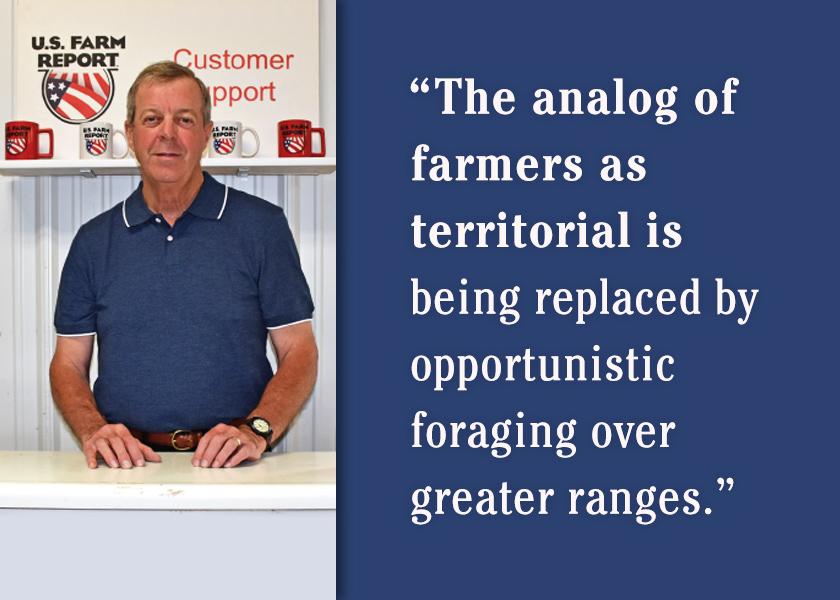John Phipps: The Collateral Consequences of High-Speed Farming

For many years, farmers were among the tiny number of people who could feel the difference between moving at 5 mph and 5.5 mph. Constrained by seed singulation and placement, corn planters rolled along at that fixed maximum to produce uniformly placed seeds. More coverage was accomplished with ever-wider planters.
This meager speed limit has been left in the dust with the aid of technology. For those lucky enough to get their hands on the technology, field work will never be the same. The less fortunate spend our springs carefully averting our jealous eyes from neighbors flying across their fields.
Similarly, tillage equipment has no time to dawdle with planter operators pushing 100 acres per hour (once transit, filling and end-row time is excluded). Manufacturers responded with modified disks relabeled vertical tillage and beefed-up cultivators, then hooked them to huge power plants to match the planter acceleration.
ONE-WAY TRANSITION
This is a one-way transition. Once you’ve experienced the world at 10 mph you can’t endure slower.
There are collateral consequences. Farms struggle to grow contiguously, since land rental and ownership turnover is too slow and idiosyncratic to accumulate large, compact operations. Thus, a modified model has emerged.
With fieldwork taking less time, transit can occupy more hours, perhaps even the majority. The range of an operation can be extended miles wider. The analog of farmers as territorial is being replaced by opportunistic foraging over greater ranges. Think of bees on steroids — not predators defending territory.
How far this model can be expanded remains to be seen. At some point it may require satellite operating centers with their own operating ranges. More machinery traffic will erode public sympathy for road-hogging equipment.
DOMINATE VERSUS DISRUPT
Dilution of community identity is inevitable. Farmers might be the vaunted backbone of rural America but only in their home community.
What responsibility do these migrants share with locals for infrastructure or group projects? What need do they have for local inputs? Dependent on owners with weak local social connections, far-flung operations might never dominate but will disrupt.
The biggest threat is to midsized farms with rented acres at risk because of operator inattention or ownership turnover.
The systemic inefficiencies of scattered acres are obvious compared to localized farming. Perhaps autonomous machinery will level the field. I see few other technological, economic or social forces, however, to alter this trend.







